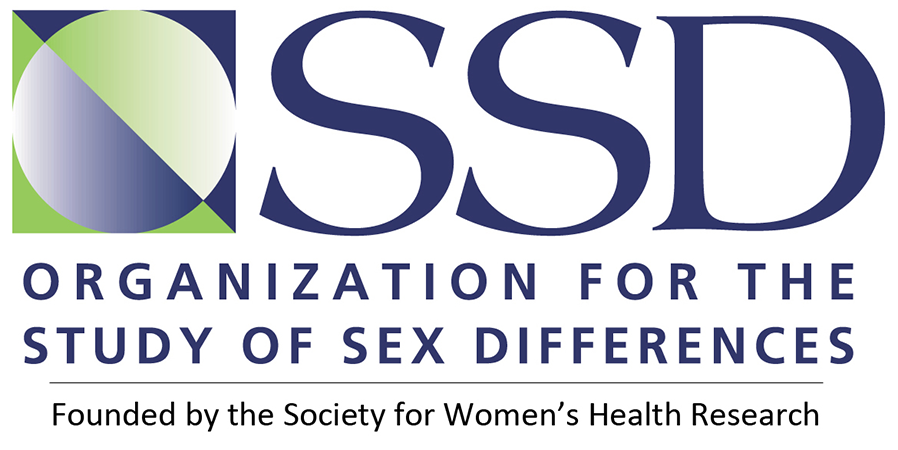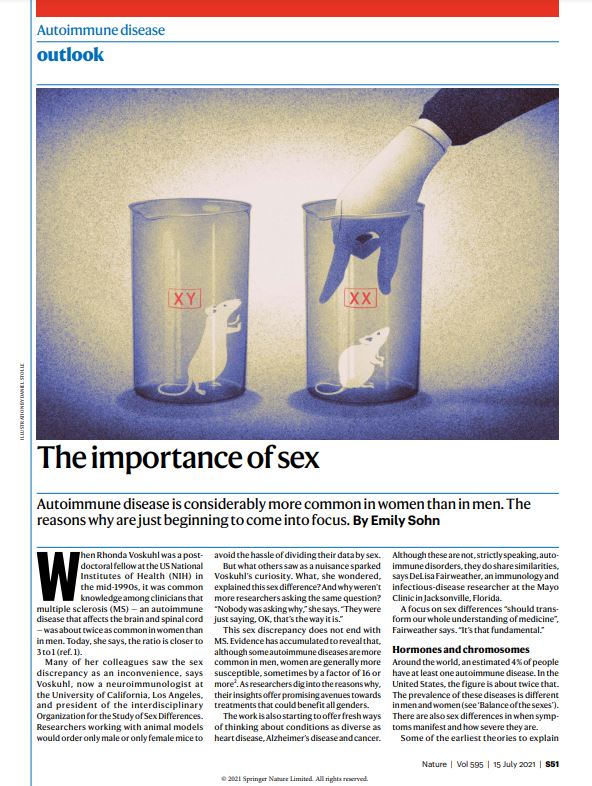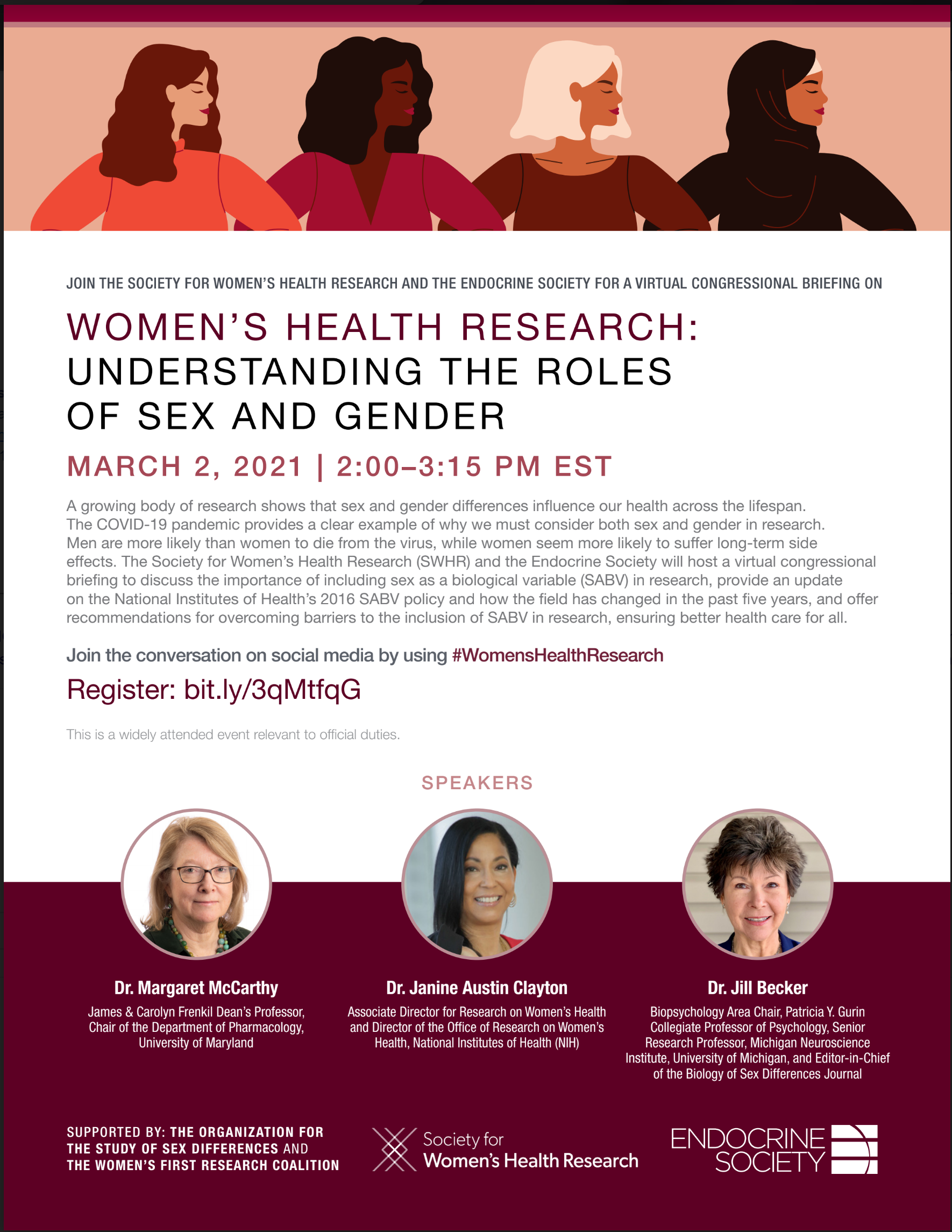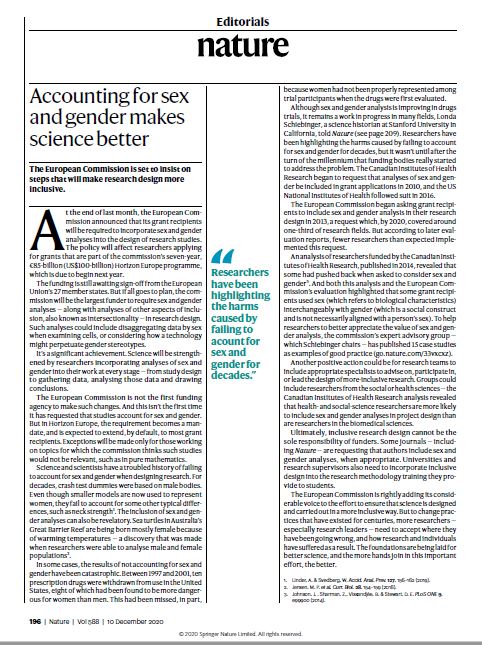 By subscribing to our mailing list, you will receive our newsletters and other updates from the OSSD.
SUBSCRIBE TO OUR MAILING LIST
Latest News Autoimmune disease: The importance of sex
|
 |
| Treasurer Christine M. Disteche, Ph.D. University of Washington, Seattle WA |
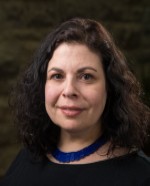 |
 |
 |
|
Councilor |
Councilor Donna L. Maney, Ph.D. Emory University |
Councilor |
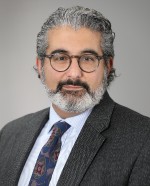 |
 |
|
Councilor |
Councilor |
Accounting for Sex and Gender Makes Science Better
Click Image to Enlarge
Call for NIH Reviewers
The NIH has a call for scientific societies to nominate members as NIH grant reviewers. Thus, OSSD is offering this possibility to its members.
NIH requirements are that applicants be scientists who are seen as experts, with integrity, in their field. They should have an active research program, substantial extramural funding as demonstrated by an RO1 or other analogous funding (including the equivalent in other countries), and not currently be a standing member of an NIH study section or NIH advisory council. NIH strongly encourages societies to recommend productive scientists from diverse backgrounds and all career stages - e.g. assistant, associate, and full professors. Early career scientists WITHOUT substantial NIH funding should consider applying directly to the NIH Early Career Reviewer Program to gain NIH review experience.
The process of OSSD nomination will begin with self application to insure willingness to review and establish that the nominee fits the above NIH criteria. It is OSSD’s goal to nominate as many OSSD members as possible that fit the NIH criteria since this will inform study sections of the importance of doing sex differences research as well as advance sophisticated critiques of proposals that include a component of sex differences research.
- Name
- Degree (Ph.D., M.D., DVM, DDS)
- NIH Commons ID
- ORCiD
- Email address
- Key terms that reflect the your broad expertise (e.g. behavioral neuroendocrinology; cardiovascular disease; etc.)
- Key terms the reflect the your research focus (e.g. estrogen receptor alpha and aggression; cardiac contractility; etc.)
- Key terms that reflect the your methodological expertise (e.g. immunohistochemistry; population-level statistical methods; etc.)
- NIH Biosketch
- Optional: 1 to 3 relevant study sections
- Optional: Additional information regarding the person’s suitability as a reviewer
To apply, click here to complete the online form.
Equity, Diversity, and Inclusion (EDI) Committee Statement
Dear OSSD family,
We at OSSD are deeply concerned by the murders of George Floyd and so many others who are victims because of their skin color. This event highlights the long history of systemic racism against Black people. We recognize the struggle of Black people who continue to face unjust hardships in our society, and we stand with our Black community.
In addition to these events, the disproportionate impact of the coronavirus on diverse communities reveals ongoing racial inequities in the US. We must do more as individuals and as a scientific society to combat institutional racism, support scientists from marginalized communities, and build a safe and inclusive environment.
OSSD was founded to enhance knowledge of sex/gender differences in order to improve health outcomes for all. To advance this goal, OSSD reaffirms our commitment to bring together basic scientists and clinicians from diverse backgrounds. True inclusivity will improve the generation of new ideas and approaches to scientific problems. We are also taking further actions to provide a scientific environment that welcomes and supports researchers and clinicians regardless of race, ethnicity, gender identity, sexual orientation, physical abilities, or mental health status. Here are the first concrete steps we plan to take:
-
We have formed an Equity, Diversity, and Inclusion (EDI) Committee to ensure representation of and provide better support for our colleagues from minoritized groups.
-
All symposium submissions will be required to include diversity information pertaining to the composition of their speaker lineup.
-
To encourage action by trainees, travel awardee applicants will have to include a Diversity and Inclusion Statement, where they describe the ways in which they have made efforts or plan to make future efforts to promote diversity and inclusion in science and medicine.
-
We invite all of our members and colleagues to familiarize themselves with the following anti-racism resources so they can serve as better stewards of diversity, equity and equality. bit.ly/AntiRacismResources.
In closing, we want to acknowledge that these times are particularly challenging for our Black colleagues and trainees. Please know that the OSSD stands with you and is committed to providing an environment that supports you and your science.
Sincerely,
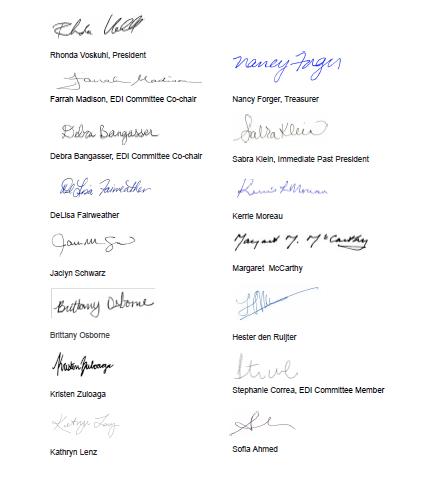

FUNDING OPPORTUNITY
RFA-OD-19-029: The Intersection of Sex and Gender Influences on Health and Disease
The purpose of this Funding Opportunity Announcement (FOA) is to invite R01 applications on the influence and intersection of sex and gender in health and disease including: (1) research applications that examine sex and gender factors and their intersection in understanding health and disease; and (2) research that addresses one of the five objectives from Strategic Goal 1 of the new 2019-2023 Trans-NIH Strategic Plan for Women's Health Research "Advancing Science for the Health of Women." The awards under this FOA will be administered by NIH ICs using funds that have been made available through the Office of Research on Women’s Health (ORWH) and the scientific partnering Institutes and Centers across NIH.
Open Date (Earliest Submission Date): October 25, 2019
Letter of Intent Due Date(s): 30 days prior to the application due date
Application Due Date(s): November 25, 2019; November 25, 2020, November 26, 2021
View the full announcement at https://grants.nih.gov/grants/guide/rfa-files/RFA-OD-19-029.html
You're invited to the Libin International Trainee Symposium: Research is Better with Sex and Gender! on February 4-5, 2020. Join the growing community of trainees interested in learning how to integrate sex and gender into research from basic to population science! We are very excited to welcome Drs. Roxana Mehran, Sharon Mulvagh, Colleen Norris and Jenna Haverfield as our keynote speakers.
For more information and to submit an application,please visit www.libin.ucalgary.ca/traineesymposium.
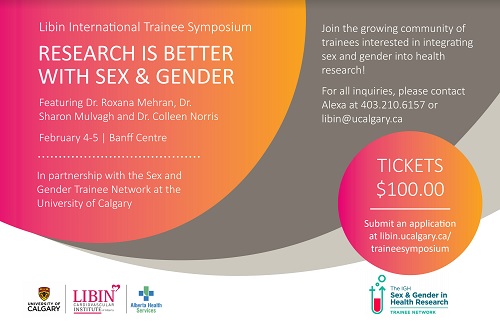 Help generate ideas that will unify and advance the biological sciences. The NSF directorate for Biological Sciences (BIO), the University Corporation for Atmospheric Research (UCAR) and KnowInnovation (KI) would like to let you know of the opportunity to participate in a series of NSF-funded virtual and in-person events focused on identifying the opportunities and challenges for reintegrating research across the biology subdisciplines. More details can be found at https://reintegratingbiology.org/.Biology has the goal of understanding the processes that generate and sustain life. Despite this unifying principle, the actual practice of modern biology has become increasingly fragmented into subdisciplines due, in part, to specialized approaches required for deep study of narrowly defined problems. BIO aims to encourage a unification of biology. Our goal is to stimulate creative integration of diverse biological disciplines using innovative experimental, theoretical, and computational approaches to discover underlying principles operating across all hierarchical levels of life, from biomolecules to organisms, species, ecosystems, and biomes.Earlier this year, BIO asked members of the biological sciences community for high-level ideas on the research questions and topics that would benefit from NSF investment in a truly integrated research environment. The responses from across the country offered a broad range of fundamental biological questions spanning the scales of biological organization. BIO now wants to grow and enrich the conversation with a view to priming the formation of new NSF-supported research teams around these questions.To that end, you are invited to sign up for one of the Virtual Town Hall discussions which will take place September 17, 2019 from 11:00 AM-12:30 PM EDT and September 18, 2019 from 1:00-2:30 PM EDT. These events will help identify themes for more focused, in-person discussions that will take place later in the fall – fertile soil for germination of new, foundational cross-disciplinary ideas that will unify and advance the biological sciences. Space is limited, so we encourage you to register early.
Help generate ideas that will unify and advance the biological sciences. The NSF directorate for Biological Sciences (BIO), the University Corporation for Atmospheric Research (UCAR) and KnowInnovation (KI) would like to let you know of the opportunity to participate in a series of NSF-funded virtual and in-person events focused on identifying the opportunities and challenges for reintegrating research across the biology subdisciplines. More details can be found at https://reintegratingbiology.org/.Biology has the goal of understanding the processes that generate and sustain life. Despite this unifying principle, the actual practice of modern biology has become increasingly fragmented into subdisciplines due, in part, to specialized approaches required for deep study of narrowly defined problems. BIO aims to encourage a unification of biology. Our goal is to stimulate creative integration of diverse biological disciplines using innovative experimental, theoretical, and computational approaches to discover underlying principles operating across all hierarchical levels of life, from biomolecules to organisms, species, ecosystems, and biomes.Earlier this year, BIO asked members of the biological sciences community for high-level ideas on the research questions and topics that would benefit from NSF investment in a truly integrated research environment. The responses from across the country offered a broad range of fundamental biological questions spanning the scales of biological organization. BIO now wants to grow and enrich the conversation with a view to priming the formation of new NSF-supported research teams around these questions.To that end, you are invited to sign up for one of the Virtual Town Hall discussions which will take place September 17, 2019 from 11:00 AM-12:30 PM EDT and September 18, 2019 from 1:00-2:30 PM EDT. These events will help identify themes for more focused, in-person discussions that will take place later in the fall – fertile soil for germination of new, foundational cross-disciplinary ideas that will unify and advance the biological sciences. Space is limited, so we encourage you to register early.
Please visit https://reintegratingbiology.org/ to sign up and find out more information.
